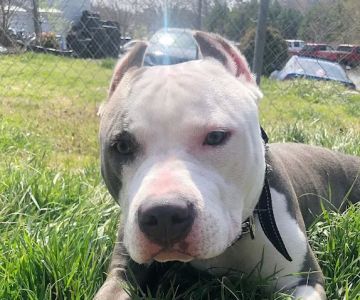1. Introduction: The Path to Becoming a Veterinarian
If you’ve ever considered a career in veterinary medicine, you may have wondered: "Do you need a PhD to be a veterinarian?" The answer is more nuanced than a simple yes or no. Becoming a veterinarian is a highly respected profession, one that requires years of education and training, but not necessarily a PhD. In fact, while a doctorate degree is important in some scientific and academic fields, veterinarians typically pursue a different educational path.
In this article, we will explore the educational requirements to become a veterinarian, debunk myths surrounding the need for a PhD, and provide clarity on the necessary qualifications and steps to enter this rewarding profession. Understanding the path to becoming a vet is crucial if you’re planning to pursue a career in animal care and want to know what to expect along the way.
2. The Educational Journey of a Veterinarian
Unlike some medical professions where a PhD is required for practice, becoming a veterinarian primarily involves earning a Doctor of Veterinary Medicine (DVM) degree. While a PhD in veterinary science is an advanced degree often pursued by those interested in research, teaching, or specialized veterinary fields, it is not a requirement for most practitioners.
The DVM is the standard degree that qualifies individuals to practice veterinary medicine. This program typically takes 4 years to complete after obtaining a bachelor’s degree. The journey to becoming a veterinarian includes a combination of classroom education, hands-on clinical training, and extensive knowledge in animal anatomy, physiology, pharmacology, and surgical procedures.
After completing the DVM, aspiring veterinarians must also pass licensing exams specific to the region where they intend to practice. While the process is rigorous, it is designed to ensure that those entering the field are equipped with the necessary skills and knowledge to provide high-quality care to animals.
3. Differences Between a DVM and a PhD in Veterinary Medicine
One of the most common misconceptions about becoming a veterinarian is that it requires a PhD. However, a PhD is a research-focused degree, not a clinical practice degree. Let’s take a closer look at the differences between the two:
3.1 Doctor of Veterinary Medicine (DVM)
The DVM is the degree required to become a practicing veterinarian. This program prepares students to diagnose, treat, and prevent diseases in animals. DVM programs provide extensive training in animal care, including surgery, pharmacology, diagnostics, and emergency care. Veterinary school graduates with a DVM are licensed to work in private practice, clinics, animal hospitals, or even government agencies.
3.2 PhD in Veterinary Science
A PhD in veterinary science, on the other hand, is typically pursued by those interested in research or teaching at the university level. This advanced degree focuses on scientific discovery, research, and advancing the understanding of veterinary science. Those who hold a PhD in veterinary science may work in research institutions, contribute to animal health innovations, or teach veterinary students.
While a PhD in veterinary science is valuable for certain academic and research roles, it is not necessary for those aiming to become veterinarians who work directly with animals. The DVM is sufficient for clinical practice and the majority of veterinary careers.
4. The Path to Becoming a Veterinarian
Now that we’ve clarified the difference between a DVM and a PhD, let’s dive into the steps required to become a veterinarian. This journey involves several key phases, each requiring dedication, hard work, and a passion for animal care.
4.1 Complete a Bachelor’s Degree
The first step to becoming a veterinarian is obtaining a bachelor’s degree, typically in a field related to science, such as biology, chemistry, or animal science. While there’s no specific undergraduate degree required, most veterinary schools prefer candidates with a solid foundation in the sciences.
During your undergraduate years, it’s important to gain relevant experience through internships or volunteer work with animals. This not only strengthens your application to veterinary schools but also provides invaluable exposure to the field.
4.2 Apply to a Veterinary School
After completing your bachelor’s degree, the next step is applying to an accredited veterinary school to earn your DVM. Veterinary school admissions are highly competitive, so it’s important to have a strong academic record, relevant experience, and a demonstrated commitment to animal welfare.
During veterinary school, you will undergo rigorous coursework in animal anatomy, diseases, pathology, surgery, and other essential subjects. You will also complete clinical training in veterinary hospitals, working directly with animals under the supervision of experienced veterinarians.
4.3 Complete Licensing Requirements
After earning your DVM, you must pass a licensing exam to legally practice as a veterinarian. The most common licensing exam in the United States is the North American Veterinary Licensing Examination (NAVLE). You may also need to meet additional state-specific licensing requirements.
Once licensed, you can begin practicing as a veterinarian in your chosen field, whether that’s private practice, emergency care, public health, or animal research.
5. Specializing in Veterinary Medicine
While becoming a veterinarian doesn’t require a PhD, many veterinarians choose to specialize in certain areas of veterinary medicine, such as surgery, dermatology, or cardiology. Specialization often requires additional training beyond the DVM, including internships, residencies, and certification exams. However, even specialized veterinarians do not require a PhD.
Specialization can open doors to more advanced career opportunities, higher earning potential, and the chance to work in cutting-edge areas of veterinary science.
6. Conclusion: Is a PhD Necessary to Become a Veterinarian?
To summarize, you do not need a PhD to become a veterinarian. The essential degree for practicing veterinary medicine is the Doctor of Veterinary Medicine (DVM), which prepares you to care for animals, diagnose and treat diseases, and perform surgeries. While a PhD in veterinary science is beneficial for research and academic careers, it is not required for clinical practice.
If you’re interested in becoming a veterinarian, focus on obtaining a DVM, gaining experience through internships, and completing the necessary licensing requirements. With the right education and training, you can pursue a fulfilling career caring for animals and making a meaningful impact on their health and well-being.
If you’re looking for guidance or assistance in the veterinary field, whether it’s for career advice or veterinary services, visit Fred Miller Lawyer for expert advice tailored to your needs.











